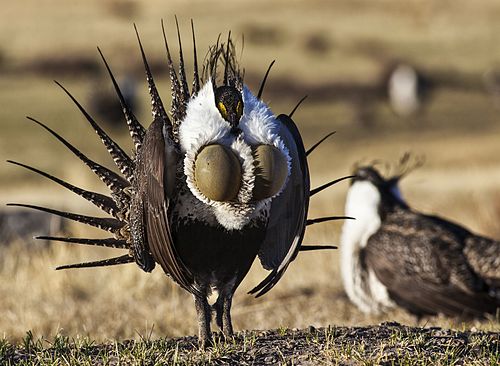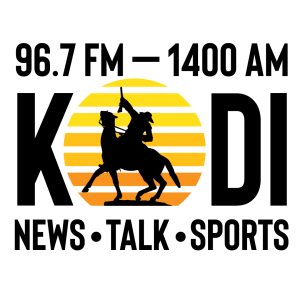2020 was far from ideal for most Wyoming residents, but sage grouse took it as an opportunity to hold steady without having to wing it.
Wyoming Game and Fish reports their preliminary data – collected with the assistance of hunters – shows sage grouse populations held steady in 2020. For delicate populations under many pressures, this is welcome news.
The preliminary numbers show Wyoming’s chick-to-hen ratio was 1.1 chicks/hen. That mirrors the numbers reported in 2019 – not higher, but not lower either.
“It appears Wyoming’s sage grouse populations are flattening out at the trough of the cycle,” says Leslie Schreiber, Wyoming Game and Fish Department sage grouse/sagebrush biologist. “A growing population needs at least 1.5 chicks/hen.”
Meanwhile, the male sage grouse continued to strut their stuff at the 1,800 known leks throughout Wyoming. Male attendance at these leks did drop in spring 2020 – but only by 1.5%.
How was all this sage grouse information collected? By direct observation – and wings.
The chick/hen ratio is determined thanks to the wings of harvested sage grouse chicks and hens. This is where Wyoming’s hunters play a crucial role in conservation biology.
Hunters voluntarily deposited wings from 980 chicks and 874 hens in collection barrels, mainly in central and southwest Wyoming. Those wings were used to get these population estimates.
The reasons for this stable year-to-year population are simple: health and habitat. 2020 had a wet spring and summer, providing ample sage growth for foraging adults and insects, which are crucial to the diets of chicks in their first month.
Sage grouse is more than just a descriptive name – the health of the birds depends on the health of the sage. Grouse cannot survive without enough healthy sage.
All this information shows the signs of an ideal Wyoming sage grouse population – successfully reproducing and high enough to be hunted without detrimental effects. This is all encouraging news for the state which houses 38% of the United State’s extant sage grouse.
The final results will be posted on the Wyoming Game and Fish website once they have been fully compiled. That report is expected sometime in early spring.










